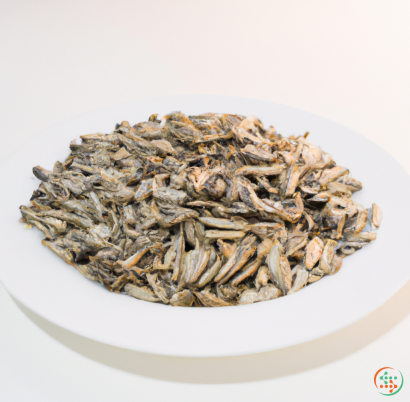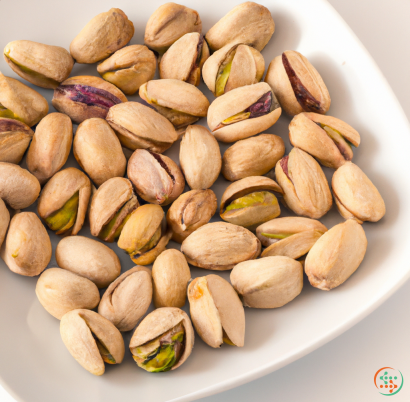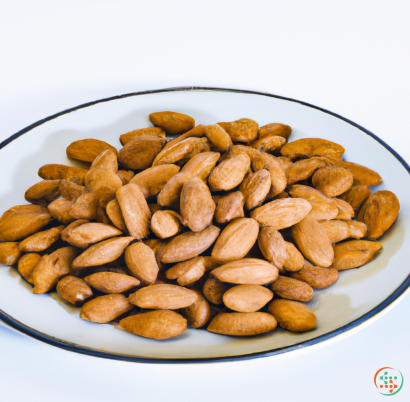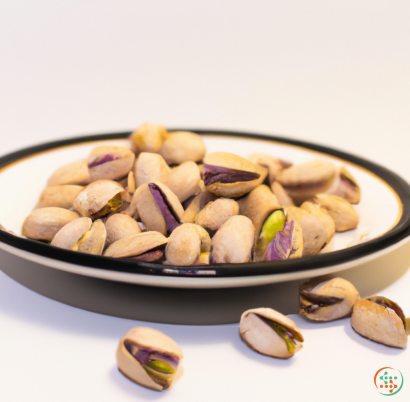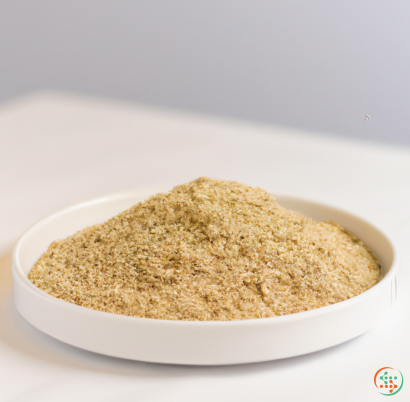Walnuts
The walnut is a type of tree nut and is one of the most popular nuts for both its flavor and health benefits. Walnuts have long been coveted for their host of healthful properties. They are packed with essential vitamins, minerals and antioxidants that can ward off disease and promote good health, as well as being an excellent source of protein and dietary fiber. Walnuts can be enjoyed in a variety of different ways, such as in salads, smoothies, baked goods and even as a tasty snack all on their own!
The walnut is derived from the Juglans genus and the walnut tree is native to the Mediterranean region, the Middle East, Central Asia and the Indian subcontinent. It is often referred to as an English walnut, though the English walnut is not native to England itself but rather was brought to England by way of more southerly countries.
Walnuts come in both halves and halves configurations, and can range in size from small and large to extra-large. They have a hard outer shell that is usually removed before the nut is consumed. The internal flesh of the walnut is what’s eaten, and this can be eaten raw, roasted or salted. The high nutritional content of walnuts makes them a great nutritional addition to the diet.
Walnuts are packed with good nutrition and offer a great selection of health benefits. These include heart-health benefits, improved brain power, protection against cancer, weight loss, and improved metabolism. The brain-boosting properties of walnuts are no doubt due to their high concentration of omega-3 fatty acids, a unique type of fat that’s technically classified as polyunsaturated. Omega-3 fatty acids help keep your cells healthy and play a role in preventing inflammation. They also promote better cognitive function and are believed to reduce the risk of age-related mental decline.
Walnuts can also help reduce cholesterol levels, as they contain polyunsaturated fats and plant sterols which have been shown to lower levels of “bad” LDL cholesterol while keeping “good” HDL cholesterol levels stable. Furthermore, walnuts have also been associated with a lowered risk of stroke. Research indicates that higher intakes of walnuts correlate with a decrease in the risk of stroke.
In terms of weight loss, walnuts contain high levels of polyunsaturated fats and dietary fiber, both of which can help satisfy hunger and help with weight control. Furthermore, walnuts contain a significant amount of protein which can improve feelings of fullness, making them an ideal snack when you’re trying to lose weight.
Last but not least, walnuts are an excellent source of antioxidants. This type of compound helps protect the body from free radical damage and may help reduce the risk of certain chronic illnesses. In particular, studies suggest that they could help reduce the risk of certain types of cancer.
It’s clear to see that walnuts are a superfood and offer plenty of health benefits. However, it’s also important to note that walnuts can be high in calories, so it’s best to consume them in moderation. Enjoying a handful of these nutritious nuts a few times a week is a great way to get the benefits of walnuts without overdoing it.
Introduction
The journey a walnut makes from the tree to a dinner plate is an interesting journey. From the walnut tree to our plate, walnuts can travel hundreds of miles and must pass through several steps to get there. This blog post will discuss how walnuts are grown, harvested, and processed on their way to a dinner plate.
Growing Walnuts
Walnuts are predominately grown in temperate climates such as California, France, and Turkey. In the wild, walnuts grow on trees that range in height from 10 to 20 feet tall. Farming walnuts is a broad and complex process. To start, farmers must spend an incredible amount of effort on crop selection ensuring that only the best walnut trees are selected.
The average walnut tree takes 4-7 years before it can produce any fruit; however, once it does start producing, it will bear several dozen nuts annually for around15-25 years. During fruiting periods, the trees must be monitored for weather changes, irrigation, and pest control.
Harvesting Walnuts
Walnuts are ripe for harvest within a set period of time each year. Harvest time varies, but generally, the harvesting season begins in mid-August in California. During harvest, walnuts are handpicked from trees or, more recently, sometimes shaken from the tree with a special machine and collected from the ground.
Walnuts are then placed in burlap sacks and transported to a processing plant. It is important to be wary of the weather during harvest season because rain and wetness can damage the walnuts. After being processed, walnuts can weigh anywhere from 5-25 pounds per sack.
Cleanliness and Sorting
Once the walnuts have reached the processing plant, the first step is a rigorous cleaning process. The walnuts are washed in high-temperature water and air-dried. This helps eliminate the dirt, dust, and potential freeloaders from the walnuts.
The next step is to sort the walnuts by size and shape. This sorting process is often done by hand or machine. Generally, walnuts that are round and large in size fetch higher prices than those that are misshapen or small.
Grading and Packaging
The final step in processing walnuts is grading and packaging. The grading process involves weighing, checking the ripeness and size, and examining the walnuts for damaged or flawed pieces. The walnuts are then graded into 5-7 categories based on size, shape, and color.
The graded walnuts are packaged into various containers, such as bulk bags, cases, pails, or drums depending on customer preference. To protect both quality and safety, the packages are lined with one or more layers of plastic.
Transportation and Export
The packaged walnuts are transported to market via trucks, trains, ships, airplanes, and other modes of transportation depending on the customer's needs and budget. Additionally, walnuts that are to be exported must pass international inspection and certification from the Department of Agriculture.
Walnuts on a Dinner Plate
Once the walnuts have reached their destination, the journey is nearly complete. Depending on the recipe, an array of methods can be used to prepare walnuts for a delicious meal. Walnuts can be eaten raw, roasted, crushed into a butter, or crushed as a garnish.
In addition to being eaten straight, walnuts can also be baked into various pastries or added to salads or main dishes. Walnuts are a perfect addition to almost any meal. Whether they’re baked in a cake or sprinkled on top of a salad, walnuts are sure to add a tasty crunch and nutty flavor to any dish.
Conclusion
The journey a walnut takes from the tree to our dinner plate is a fascinating one. From its humble beginnings as a young tree to its eventual packaging and delivery, a series of intricately-arranged steps are necessary for the walnuts to become part of our dining experience. We cannot underestimate the importance of the walnut in our diet and its impact on our health and well-being. We owe a debt of gratitude to the farmers and workers who ensure that the walnuts we eat are of the highest quality.
| Vitamin A | 0.001 mg | |
| Beta-Carotene | 0.012 mg | |
| Vitamin E | 0.7 mg | |
| Vitamin K | 0.0027 mg | |
| Vitamin C | 0.0013 grams | |
| Vitamin B1 | 0.34 mg | |
| Vitamin B2 | 0.15 mg | |
| Vitamin B3 | 0.00113 grams | |
| Vitamin B4 | 0.0392 grams | |
| Vitamin B5 | 0.57 mg | |
| Vitamin B6 | 0.54 mg | |
| Vitamin B9 | 0.098 mg |
| Calcium | 0.098 grams |
Daily Value 1.3 g
|
| Iron | 0.00291 grams |
Daily Value 0.018 g
|
| Magnesium | 0.158 grams |
Daily Value 0.4 g
|
| Phosphorus | 0.346 grams |
Daily Value 1.25 g
|
| Potassium | 0.441 grams |
Daily Value 4.7 g
|
| Sodium | 0.002 grams |
Daily Value 2.3 g
|
| Zinc | 0.00309 grams |
Daily Value 0.011 g
|
| Copper | 0.00159 grams |
Daily Value 0.9 mg
|
| Manganese | 0.00341 grams |
Daily Value 0.0023 g
|
| Selenium | 0.0049 mg |
Daily Value 0.055 mg
|
| Tryptophan | 0.17 grams | |
| Threonine | 0.596 grams | |
| Isoleucine | 0.625 grams | |
| Leucine | 1.17 grams | |
| Lysine | 0.424 grams | |
| Methionine | 0.236 grams | |
| Cystine | 0.208 grams | |
| Phenylalanine | 0.711 grams | |
| Tyrosine | 0.406 grams | |
| Valine | 0.753 grams | |
| Arginine | 2.278 grams | |
| Histidine | 0.391 grams | |
| Alanine | 0.696 grams | |
| Aspartic Acid | 1.829 grams | |
| Glutamic Acid | 2.816 grams | |
| Glycine | 0.816 grams | |
| Proline | 0.706 grams | |
| Serine | 0.934 grams |
| Glucose | 0.08 grams |
|
| Fructose | 0.09 grams |
|
| Sucrose | 2.43 grams |
|
| Total Sugars | 0.131141 grams |
per 100g
|
| Palmitic acid (16:0) | 4.4 grams |
|
| Stearic acid (18:0) | 1.66 grams |
|
| Arachidic acid (20:0) | 0.06 grams |
|
| Total Saturated fatty acids: | 6.12 g | |
| Oleic acid (18:1) | 8.8 grams |
|
| Gadoleic acid (20:1) | 0.13 grams |
|
| Total Monounsaturated fatty acids: | 8.93 g | |
| Linolenic acid (18:3) | 9.08 grams |
|
| Linoleic acid (18:2) | 38.09 grams |
|
| Total Polyunsaturated fatty acids: | 47.17 g | |
| Campesterol | 0.01 grams |
|
| Beta-sitosterol | 0.09 grams |
|
| Total Sterols: | 0.1 g | |

